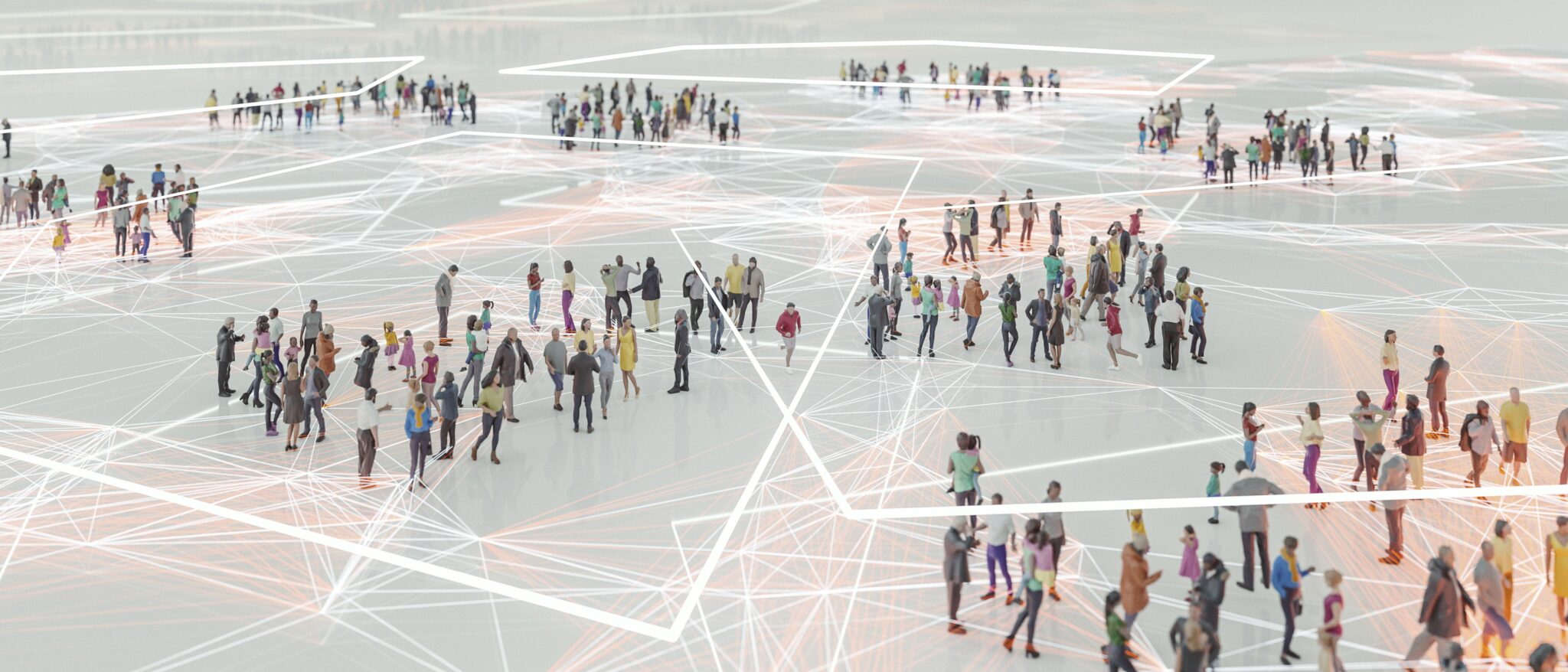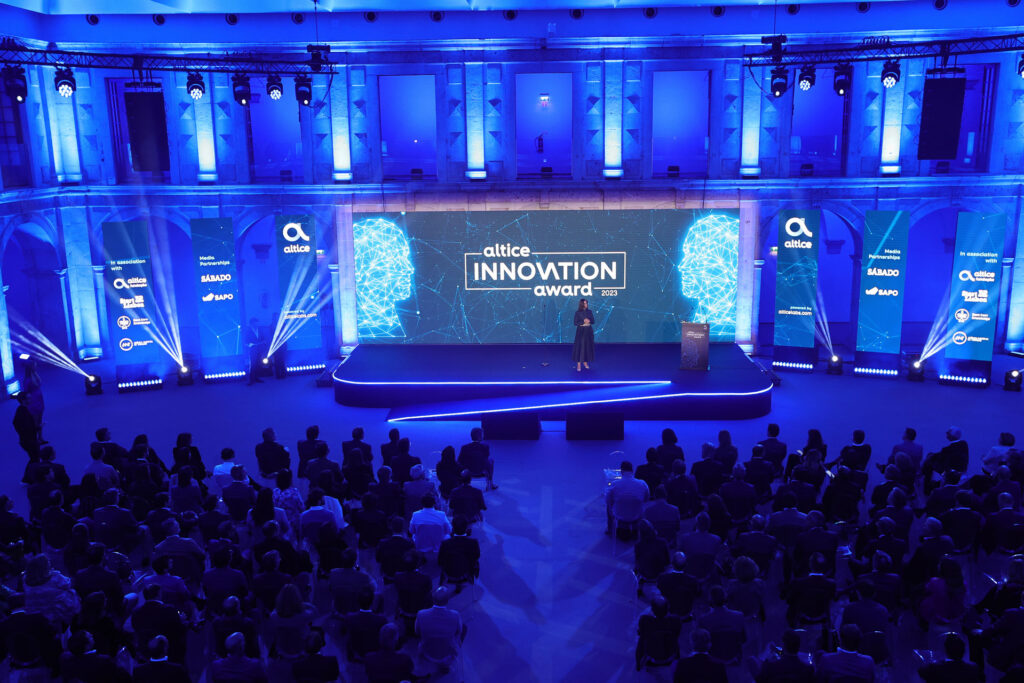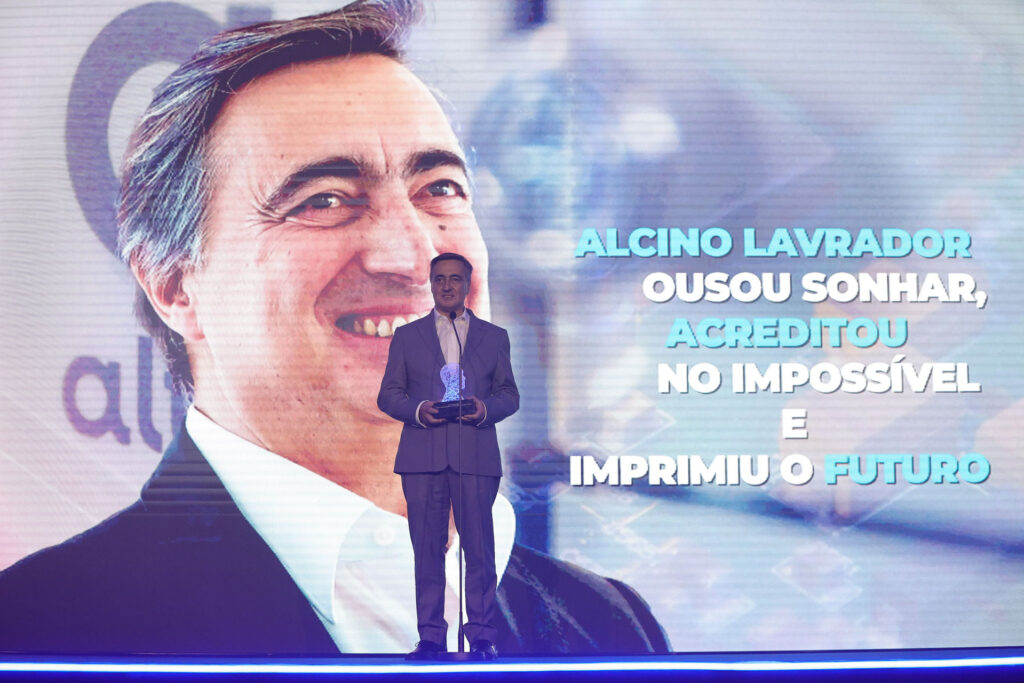The goal of the Altice Foundation, which sponsors the Altice International Innovation Award (AIIA) Inclui category, is to ensure that nobody gets left behind in using technology, but also in their professional career and day-to-day life. To this end, Altice Labs created this category, which assesses projects which have an innovative approach and a positive impact on social and digital inclusion in Portugal.
In this year’s edition the final three projects, represented by Afonso Cunha, Cornel Amariei and David Verde, hope to demonstrate their value and impact on society and win the €20,000 euro prize. Cornel Amariei, who is promoting the .lumen project involving glasses for the blind, tells us “We should make more effort to promote and highlight the fact that social impact is key.”
For the finalists, making the shortlist is vital to fostering confidence among potential users. Furthermore, says David Verde, the head of the Mobiis project, “this exposure is crucial to publicising our solution and generating interest in new employees.” This opinion is shared by Cornel Amariei, who states his desire that “the world’s visually impaired should know that there are people working to help them achieve greater mobility.”
The Inclui category assesses projects which have an innovative approach and a positive impact on social and digital inclusion in Portugal.
The three finalists
Zoomguide
Setting off to discover the world, whether in a city or in museums and monuments, is made possible with this tool which uses artificial intelligence (AI) to recognise the surroundings and deliver relevant multimedia content.
Zoomguide’s creators highlight its goals as being strengthening users’ ability to discover and access cities and cultural heritage sites, promoting equal access to all, including those with visual, hearing and cognitive impairments, whether adults or children, by drawing on the community’s involvement to expand throughout cities and have a positive impact.
The project is geared towards two different target audiences. Firstly, a broader audience comprising children, youngsters and adults with hearing, visual and cognitive impairments. And secondly, professional users such as city councils, museum curators, tourist guides and community creators, among others, who will be able to customise this tool and make it available to specific audiences. The value proposition basically entails “making discovering cities and their cultural heritage an interactive and inclusive experience, and providing cutting-edge technologies capable of generating new revenue sources and attracting new audiences.”
The many advantages afforded by this solution include its simplicity of use without requiring an app to be downloaded or installed, the fact that it can be accessed from any smartphone, and a user experience with no loss of performance compared to mobile apps.
.lumen – glasses for the blind
There are over 40 million blind people worldwide, and this number is expected to rise to 100 million by 2050. Despite technological advances, there are still only two mobility solutions for the blind: guide dogs (around 28 thousand worldwide) and canes.
The .lumen – glasses for the blind solution expects to reach 40 million potential users, replicating the main features of a guide dog via an accessible medical tech product. By employing the most recent self-driving technologies, robotics and AI, the glasses are able to ‘understand’ the surroundings and guide the user, thus enabling the blind to travel, explore the world and live independently.
“What we’re doing is incredibly difficult,” explains Cornel Amariei. “From a technological point of view, it’s at the forefront of what technology can do.” The CEO of the Romanian start-up tells us how proud he is to have 60 people working on the project, but he divulges how difficult it is to secure funding and hire the right people. But despite these difficulties, he believes the company will be able to get its first product on the market during the second half of 2024. “We’re going to enter new international markets to help people all around the world.”

From glasses for the blind, to the Zoomguide tool which uses artificial intelligence to recognise surroundings, and all the way to the Mobiis app.
Mobiis – inclusive and sustainable mobility
The springboard for this project was the goal of overcoming the difficulty facing citizens with reduced mobility in the city of Viana do Castelo, leading to the development of a mobile app which works out the most accessible route, taking each user’s disability into account. The project kicked off by creating the ‘Viana+Acessível’ app, in partnership with the city council and some non-profit associations. The Mobiis project yielded very positive results, and expanded with the aim of being replicated in every city in Portugal.
But it wasn’t all smooth sailing. The head of Mobiis, David Verde, tells Sábado that the first obstacle was “to understand how to classify and perfectly understand the street features according to users’ varying conditions.” For example, one street can be suitable for wheelchair users but should be avoided by people on the autism spectrum. The challenge was overcome by making multiple contacts and working with social support organisations which work directly with people with different disabilities, such as AMA, ACAPO, IRIS, APPACDM and APCVC.
The second challenge was to tailor the app to the needs of each group of users, through trials performed using real users to improve the solution. In the beginning, he says, “the trickiest aspect was to reconcile the availability of the organisations and their users with the time we had to develop the project.” According to David Verde, there is still a lot of work to be done and improvements to be made to the final version, but “with the knowledge gained during project development and the trials carried out, we now know exactly what our goals are and how to achieve them.”












